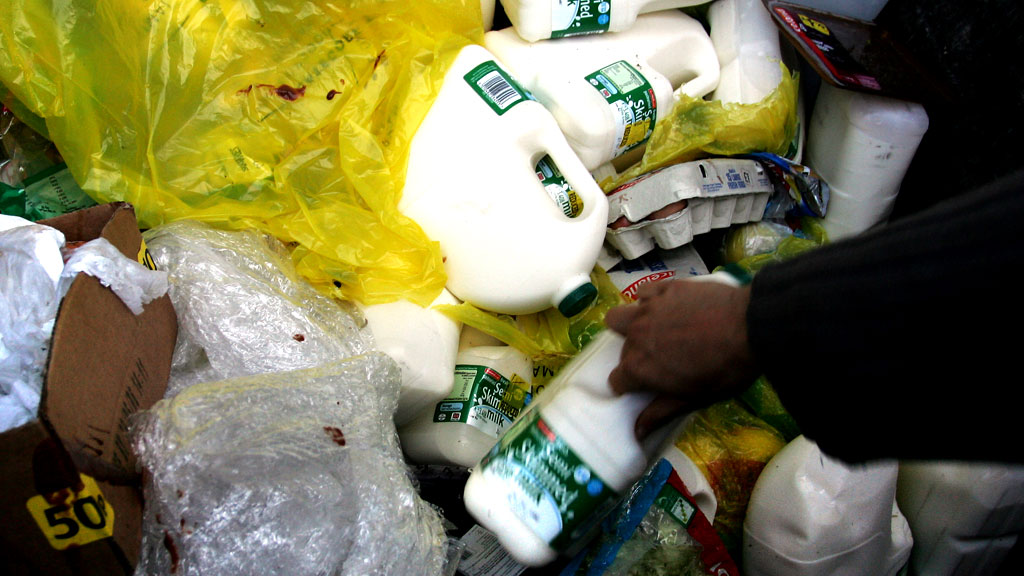Fifteen million tonnes of food waste in UK is ‘repugnant’
A House of Lords committee report has said it is “absolutely shocked” at the scale of food waste in the EU and calls on supermarkets, farmers and individuals to do more to stop it.
Globally, consumers in industrialised nations waste up to 222 million tonnes of food a year, which is equivalent to nearly the entire level of net food production of Sub-Saharan Africa
The Lords EU Committee said that food waste in the UK and EU was “clearly a huge issue” and condemned governments for not doing enough to tackle it. Around 15 million tonnes of food in the UK and at least 90 million tonnes across the EU is wasted as a whole each year.
Committee chairwoman Baroness Scott of Needham Market said: “Food waste in the EU and the UK is clearly a huge issue. Not only is it morally repugnant, but it has serious economic and environmental implications.
“The fact that 90 million tonnes of food is wasted across the EU each year shows the extent of the problem and explains why we are calling for urgent action. Globally, consumers in industrialised nations waste up to 222 million tonnes of food a year, which is equivalent to nearly the entire level of net food production of Sub-Saharan Africa.”
Lady Scott says the committee is calling for the new European Commission, due to be setup in November, should construct a five-year strategy to deal with the problem.

Food waste greater carbon footprint than US road transportation
The scale of the problem is so bad, that it is believed that carbon footprint generated by the world’s food waste is more than double that created by the US road transportation industry.
Lady Scott targeted supermarkets to reduce “buy one get one free” deals to reduce excess consumption which they believes encourages wastage.
She also said that the supermarkets should not cancel food ordered from farmers that has already been grown, as perfectly edible food is “then ploughed straight back into the field.”
It is also suggested that the government takes steps to ensure that retailers send unsold food fit for consumption to food banks instead of being turned into compost or sent to buried in landfill sites.
She said: “The UK government have a role to play in encouraging co-operation throughout the supply chain. They can also consider whether tax incentives might be used to encourage retailers to ensure unsold food that is still fit for human consumption is actually eaten by people, for example by working with food banks, rather than sent to compost or for energy recovery, or even landfill, as is often the case at present.
We were shocked at the extent of food waste in the EU. Especially given the current economic challenges the EU faces, it is an absolutely shocking waste of resources. – Lady Scott
Landfill ban?
Earlier this month the think tank the Green Alliance estimated that sending five key materials to recycling instead of landfill sites could save the UK £3.8bn pounds and create tens of thousands of jobs.
Dustin Benton, head of resource stewardship at Green Alliance, said: “The UK is currently burying billions of pounds of value in landfill and losing out on thousands of skilled jobs.
“Landfill is also a major source of greenhouse gas emissions. If we diverted all biodegradable materials to recycling it would save money and cut CO2 emissions equivalent to those from all in the homes in Manchester, Birmingham and Leeds.”
The call to divert the five materials from landfill, improve collection systems, and create new infrastructure for recycling and re-manufacturing in England comes after Scotland announced a landfill ban, while Wales is consulting on the issue.
Banning the products, which have a value if they are reused or recycled, from landfill will keep 19 million tonnes of waste out of the ground each year, the Green Alliance analysis said.
But jobs and carbon savings cannot be created while landfill remains an easy option and systems for collecting the products for reuse and recycling are limited, the think tank said.